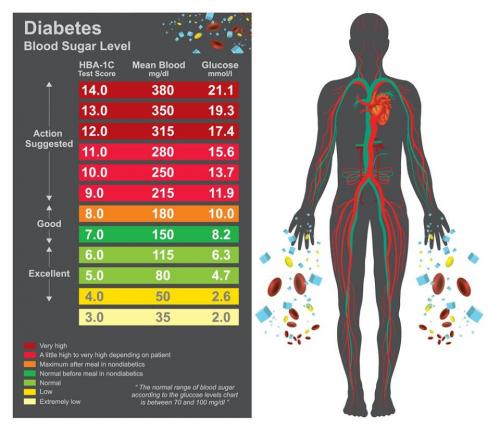5 Ways to Reduce Cortisol Levels, Manage Stress and Lose Weight

Stress is an inevitable part of life, and in small doses, it can be good for you. It can provide a rush of adrenaline and help you deal with challenging situations. But when stress becomes constant, it can have serious consequences on your health. Cortisol is one of the main culprits behind the negative effects of stress on the human body. Also known as the “stress hormone”, cortisol is produced by the adrenal glands in response to stressful situations. Its main functions are to increase blood sugar levels, decrease inflammation, and modulate protein production (among others).
In other words, cortisol helps you deal with stressful events and adapt faster to future stressful situations. However, if your cortisol levels remain high for too long, this can negatively impact your health and lead to what’s commonly referred to as “adrenaline funk”: a state of chronic stress that affects both physical and mental wellbeing.
What Is Cortisol?
Cortisol is a hormone that is produced in the body in response to stress. It’s a normal part of the human body, but cortisol levels can become elevated when we’re regularly exposed to stress. An increase in cortisol levels can have negative effects on your body, including increased blood sugar, suppressed immune function, changes in your metabolic systems, and changes in your mood and energy levels. It’s important to note that cortisol is not a bad thing — it’s an essential part of the body’s “fight-or-flight” response, and has many important functions.
When it’s at normal levels, cortisol actually helps us stay energized and focused, makes our immune system function better, and helps us process sugars. But when cortisol levels are too high, it can cause fatigue, weight gain, and a host of other health problems.
Managing Stress with Exercise
Exercising is one of the best ways to manage the amount of stress in your life. It’s a great way to let out your pent-up emotions, boost self-esteem, and meet new people. Depending on the type of exercise you choose, you can also reduce your cortisol levels. Exercise can also help you sleep better, improve your mood, and manage your weight (which can also impact cortisol levels). If you don’t feel like going for a run or hitting the gym, you can also benefit from “emotional” exercises, like writing or journaling. You can also try cognitive-behavioral therapy (CBT).
This therapy is used to treat a variety of issues, including stress, anxiety, and depression. It’s designed to help you become more aware of your thoughts and feelings, and develop skills to manage them. If you’re stressed out, one of the first things you should do is take a break from work. It’s important to set clear boundaries with your work, as excessive stress may occur if you do not set yourself limits. Being mindful and focusing on the present moment can also help reduce stress.
Managing Stress with Breathing Exercises
Our breathing is closely connected to our emotional and physical state. One of the main ways to lower your cortisol levels is to practice deep breathing. You can do this anywhere, and it can become a helpful daily routine. There are also many apps that can guide you through breathing exercises.
But be careful: some of these apps are just relaxation apps that won’t help you reduce cortisol. Make sure to choose one that has been designed to help you reduce your cortisol levels. To practice deep breathing, close your eyes, take a few deep breaths, and exhale slowly. Focus your attention on your breath, and try to do it for at least five minutes each day.
Managing Stress with Good Sleep Habits
It’s not uncommon for people who are experiencing high levels of stress to have trouble sleeping. But while sleeping more may seem like a good way to reduce your cortisol levels, it’s not that simple. Sleep is a powerful tool for stress management, but only if you do it the right way. While it’s important to get enough sleep, it’s just as important to get the right amount for your specific needs. Sleeping for longer than your body needs can actually increase your cortisol levels.
Try to optimize your sleep schedule by sticking to a consistent bedtime and waking up time. Stop using your devices and engage in stimulating activities at least an hour before you go to bed: it will help you fall asleep faster. You can also try using a sleep mask and earplugs to create a more peaceful environment.
Managing Stress with the Right Nutrition and Food
You don’t have to go on a strict diet to reduce your cortisol levels. The most important thing you can do is learn how to eat healthily. This doesn’t mean you have to completely cut out the foods you like. Instead, try finding healthy substitutes for your favorite treats. For example, you can replace your daily soda with water flavored with lemon or lime.
Eating healthy doesn’t have to mean eating bland and tasteless food. There are plenty of delicious dishes that are packed with nutrients, so you won’t feel like you’re missing out on anything. Eating a diet rich in vegetables, fruits, nuts, legumes, and fish can help you lower your cortisol levels. You can also try taking supplements that are designed to reduce cortisol levels. This isn’t something you should rely on long-term, but it’s a helpful way to get your cortisol levels under control until you’ve changed your diet.
Bottom line
Stress is unavoidable, but you can reduce its harmful effects by engaging in daily stress-management techniques like exercise, good sleep, and a healthy diet. These are long-term strategies that you can use to reduce your cortisol levels and start feeling better.
Post Your Ad Here
Comments